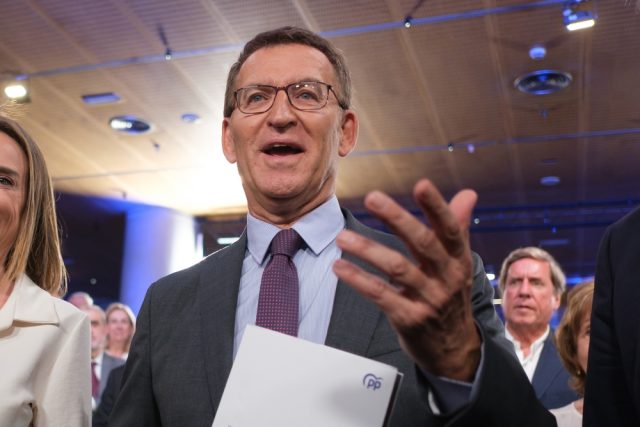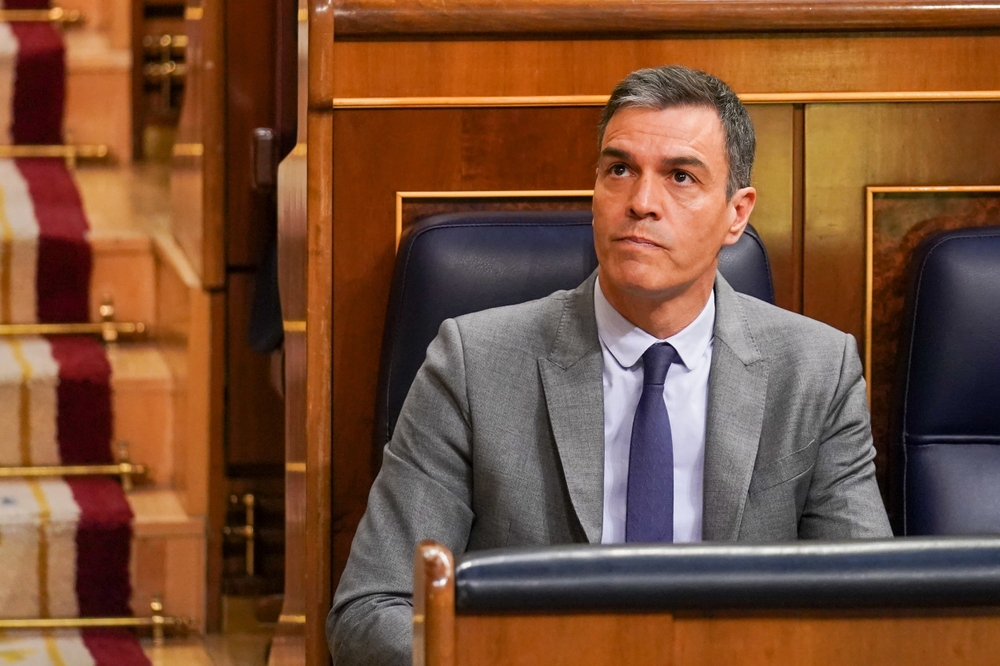
Large victory for the Partido Popular, the Gallego National Bloc did well
Regional elections were held on Sunday 18 February in Galicia, a region in Northern Spain known above all for its strong linguistic difference which has often led to discussions about the region’s autonomous status. In fact, Gallego is a different language from Castilian Spanish, as is Catalan or Basque.
The elections were re-won by the Partido Popular, which already governed the region, dropping from 42 seats to 40, still sufficient to govern Galicia, since the number of seats in the local parliament is 75, so the majority “snaps” to 38 Alfonso Rueda, outgoing President, will therefore be reconfirmed as leader of the region.
What is important, however, is to observe the results of the other political forces, national and local, that competed in these elections. If the Partido Popular (PP, PPE) came first with 47.4% of the vote, second place went to the Bloque Nacionalista Gallego (BNG, Greens/ALE), a group that pushes for greater autonomy in the region with 31, 6% of the votes and 25 seats (+6 compared to 2020).
In third place, in vertical collapse, is the Socialist Party (PSOE, S&D) with 14% of the votes and only 9 seats, when in 2020 there were 14. The local formation Democracia Ouresana closes the Galician parliament, which with the 1% but with the local redistribution of seats it takes 1 parliamentarian. Both Vox (ECR) and Sumar (GUE/NGL) are outside parliament.
In the last general elections, the Galician picture saw the PP as the first party with 43.9%, then the PSOE with 30%, followed by Sumar at 11% and the BNG at 9.5%. Vox closed the race for seats with 4.9%, remaining outside the Parliament in Galicia. The elected parliamentarians were 13 for the PP, 7 for the PSOE, 2 for Sumar, and 1 for the BNG. Precisely that seat for the BNG was then decisive for the formation of the Sánchez III Government.
 In fact, among the external supports to the executive, there are those of all the autonomist and independent political forces in Spain, including the BNG. To reach the agreement, the socialists committed to strengthening rail transport to and from Galicia and the forgiveness of 20% of the debt, which amounts to 2.7 billion euros. In addition to these more “technical” commitments, Sánchez also signed the commitment to recognize Galicia with the same autonomous status as the Basque Country and Catalonia, increasing the decision-making power of the Galician self-government.
In fact, among the external supports to the executive, there are those of all the autonomist and independent political forces in Spain, including the BNG. To reach the agreement, the socialists committed to strengthening rail transport to and from Galicia and the forgiveness of 20% of the debt, which amounts to 2.7 billion euros. In addition to these more “technical” commitments, Sánchez also signed the commitment to recognize Galicia with the same autonomous status as the Basque Country and Catalonia, increasing the decision-making power of the Galician self-government.
In addition to the gravity of having essentially used public money to make political agreements, also underselling the unity of the nation, Sánchez now also pays a toll from an electoral point of view, seeing the left-wing electorate going unitedly towards the BNG. National polls, of course, were affected by this result.
The latest polls see the Partido Popular at around 36.5%, leading the PSOE at 30% by more than six points. Vox and Sumar trail behind at 11 and 10.5% respectively. The PP-Vox coalition, according to polls, would be between 172 and 180 parliamentarians, with a majority set at 175. In 2023, 170 seats were not enough, this time they could be enough to bring Spain back to the Right.
The next important electoral event will be the regional elections in the Basque Country, which will be held by the end of the summer. To date, the Autonomous Region is in the hands of the Basque National Party (EAJ-PNV, RE) in coalition with the PSOE. According to polls, the PNV-PSOE coalition would be around 48%, holding between 36 and 38 seats out of the 75 available. If the majority is also missing in the Basque Country, especially after a result of the European elections which will certainly not see the government forces winning, it could really open up a government crisis for Sánchez.



 Subscribe
Subscribe